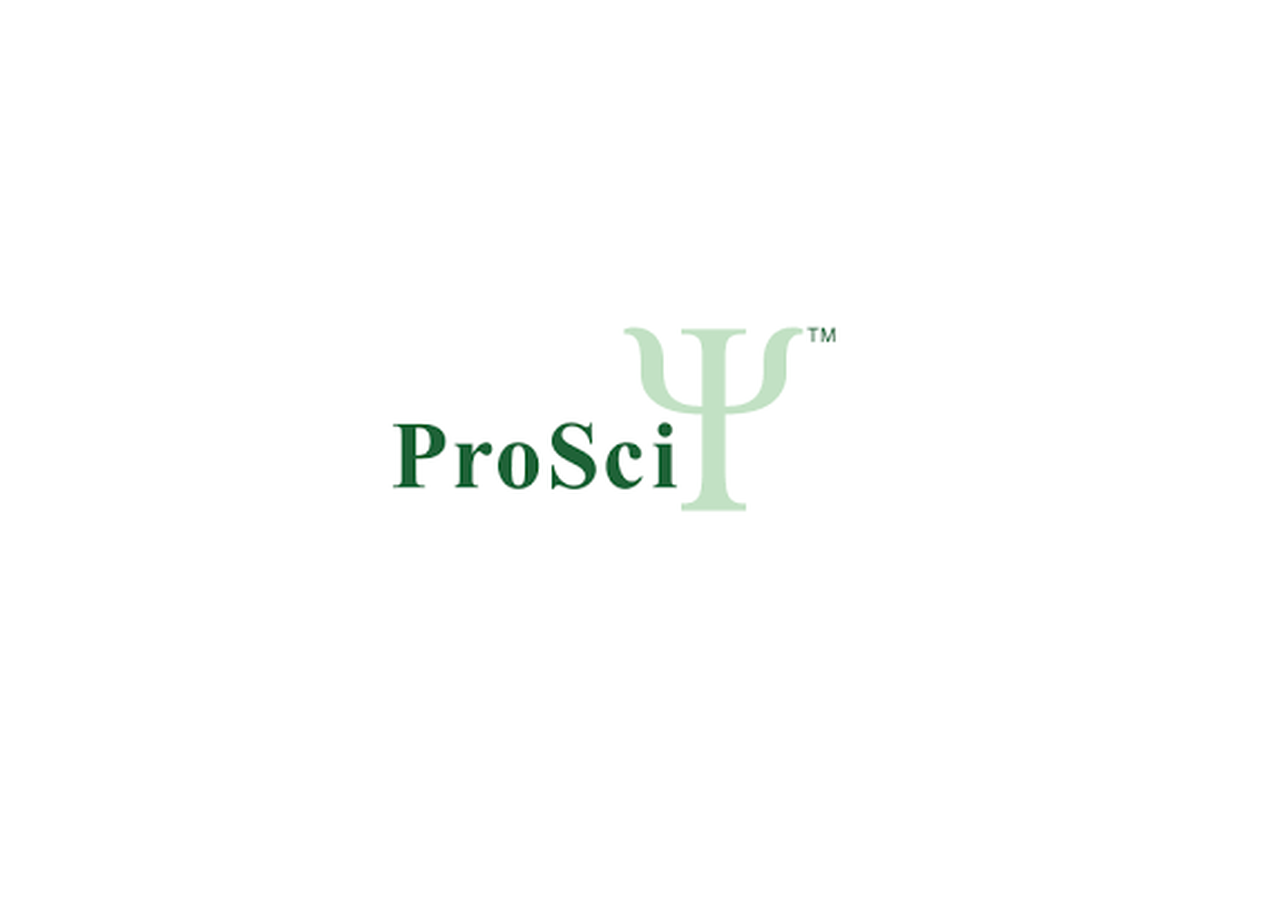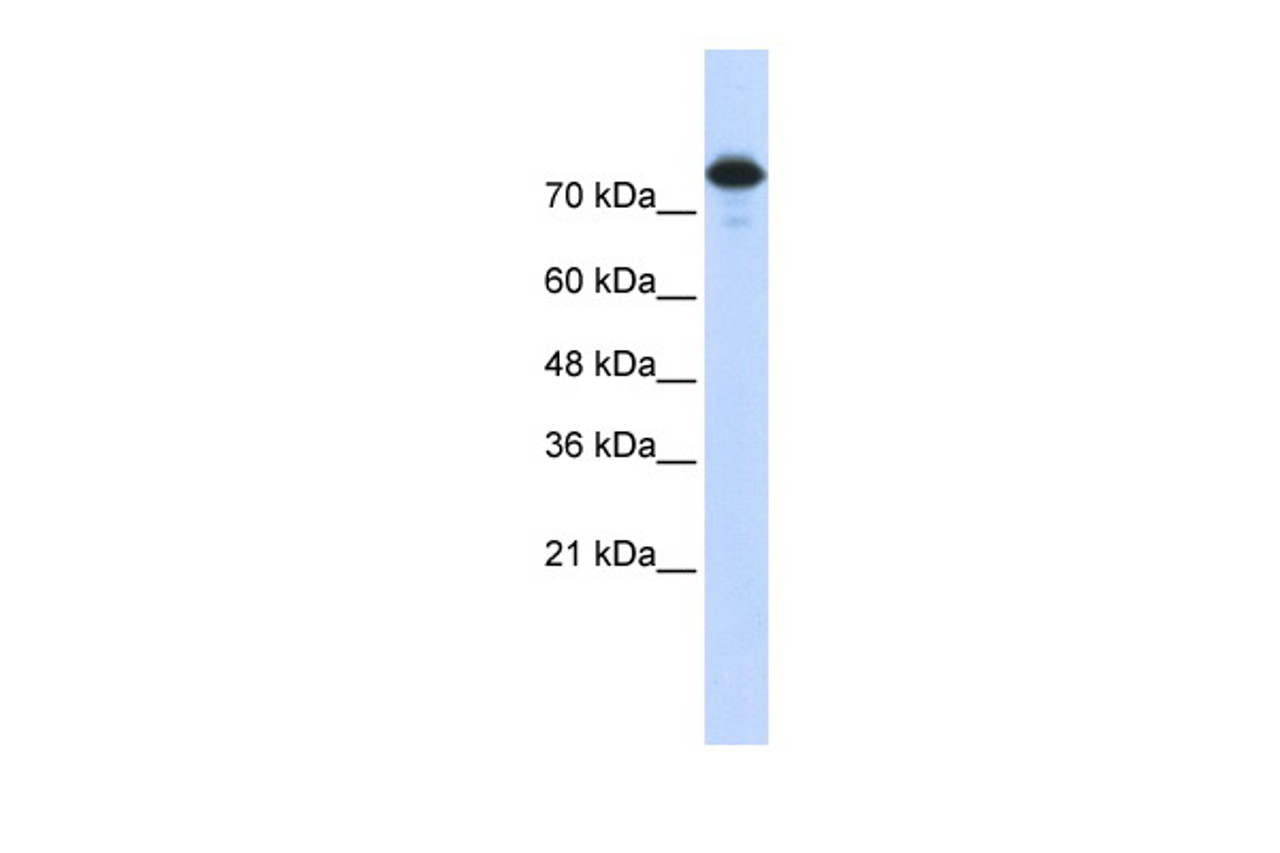Product Description
WWP2 Antibody | 25-817 | ProSci
Host: Rabbit
Reactivity: Human, Mouse, Rat
Homology: N/A
Immunogen: Antibody produced in rabbits immunized with a synthetic peptide corresponding a region of human WWP2.
Research Area: Cancer, Apoptosis, Homeostasis
Tested Application: E, WB
Application: WWP2 antibody can be used for detection of WWP2 by ELISA at 1:312500. WWP2 antibody can be used for detection of WWP2 by western blot at 1 μg/mL, and HRP conjugated secondary antibody should be diluted 1:50, 000 - 100, 000.
Specificiy: N/A
Positive Control 1: Tranfected 293T Cell Lysate
Positive Control 2: N/A
Positive Control 3: N/A
Positive Control 4: N/A
Positive Control 5: N/A
Positive Control 6: N/A
Molecular Weight: 90 kDa
Validation: N/A
Isoform: N/A
Purification: Antibody is purified by peptide affinity chromatography method.
Clonality: Polyclonal
Clone: N/A
Isotype: N/A
Conjugate: Unconjugated
Physical State: Liquid
Buffer: Purified antibody supplied in 1x PBS buffer with 0.09% (w/v) sodium azide and 2% sucrose.
Concentration: batch dependent
Storage Condition: For short periods of storage (days) store at 4˚C. For longer periods of storage, store WWP2 antibody at -20˚C. As with any antibody avoid repeat freeze-thaw cycles.
Alternate Name: WWP2, AIP2, WWp2-like
User Note: Optimal dilutions for each application to be determined by the researcher.
BACKGROUND: WWP2 is a member of the NEDD4-like protein family. The family of proteins is known to possess ubiquitin-protein ligase activity. WWP2 contains 4 tandem WW domains. The WW domain is a protein motif consisting of 35 to 40 amino acids and is characterized by 4 conserved aromatic residues. The WW domain may mediate specific protein-protein interactions. This gene encodes a member of the NEDD4-like protein family. The family of proteins is known to possess ubiquitin-protein ligase activity. The encoded protein contains 4 tandem WW domains. The WW domain is a protein motif consisting of 35 to 40 amino acids and is characterized by 4 conserved aromatic residues. The WW domain may mediate specific protein-protein interactions. Three alternatively spliced transcript variants encoding distinct isoforms have been found for this gene.
 Euro
Euro
 USD
USD
 British Pound
British Pound
 NULL
NULL










